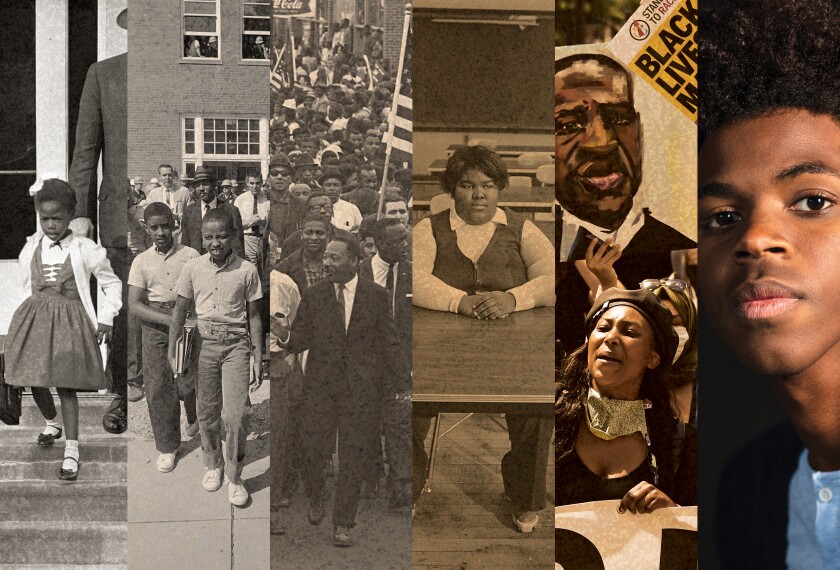Desperately seeking Black educators! Be the role model for the Black children—and not just those in your assigned class. We’ll send you any disciplinary issues we perceive with any Black child in the building, so you’ll get to do the work of a teacher, a mentor, a counselor, and a disciplinarian. We won’t compensate you for this additional labor, but we know you’re excited to make a difference in the lives of these children. Enter this rewarding career today. And don’t forget, you can’t teach Black history.
This is the message school districts send in how they recruit Black teachers. When school officials recruit Black teachers in desperation, while overlooking America’s racism, it is no wonder that they can’t retain them. They inform Black teachers that there are countless Black little faces who need them because oftentimes they may be the only Black teacher at a school, and their presence fills multiple functions as students’ role models, mentors, counselors, and disciplinarians.
Maybe school officials’ strategy for recruiting Black teachers should be to create policies, structures, and initiatives to retain Black teachers, not to recruit them. Yes, I am saying school districts should stop recruiting Black teachers until they have the infrastructure to keep them, protect them, value their labor, affirm their Blackness, and stand up for our culture, history, and communities.
From the onset, the approach that school principals and district recruiters take in recruiting Black teachers is unequal to the labor demands they make when recruiting white teachers. Black teachers are expected to be Black students’ everything, while white teachers are allowed to be teachers. Not to mention the battle fatigue Black educators endure.
For example, a 2021 study found that out of 325 Black math teachers surveyed, 97 percent reported regularly experiencing racial microaggressions in their school community. It is exhausting to come to work and have to fight for your students’ humanity and your own. At the height of the pandemic, research showed that Black teachers were more than twice as likely than teachers overall to report they were planning to leave their job at the end of last school year. This is a rate of turnover that the field can hardly afford: Black teachers already only make up 7 percent of the current teaching population.
Conventional wisdom would tell us that schools should double down on their efforts to recruit Black teachers both as a strategy to diversify the teaching population and also to help minimize teacher shortages. But why do schools keep recruiting teachers they do not know how to retain?
Schools’ inability to retain Black teachers is not only harmful to the profession but also to the students who lose out on the well-researched benefits of learning from a Black teacher. With each Black teacher who enters and then exits the teaching profession, Black children who might have grown up to become educators are learning that teaching is not a welcoming profession for them. We are losing future Black educators in the imaginations of young minds while teaching their non-Black peers that Black people don’t belong at the front of a classroom.
Black teachers have different needs from their peers because of this country’s long history of anti-Blackness. To ignore those needs is to choose to perpetuate a harmful and racist education system for Black teachers and students.
For school and district leaders ready to get serious about retaining Black teachers, one good place to start is with the recommendations by the Center for Black Educator Development and Teach Plus for supporting Black teachers. These recommendations include assigning mentors, convening affinity groups to facilitate their personal growth and identity development, and implementing culturally responsive curricula.
Learning how to retain Black teachers needs to be a focus for the entire school. Retention needs to be a recruitment tool. When a Black teacher shows up for an interview, a principal should be proud to tell them about all the work the school is doing to build a culture that respects and empowers Black teachers to be leaders in their school and community.
A principal should be able to describe how the mental health of all teachers, and especially Black teachers, is a priority at the school. Other Black teachers should be able to speak with a prospective Black teacher about all the ways they are supported by school leaders and other teachers.
Learning how to retain Black teachers means that a school is learning how to care for, love, and support Black people, a shift in the culture that will also help all the Black children in the school in the process.







